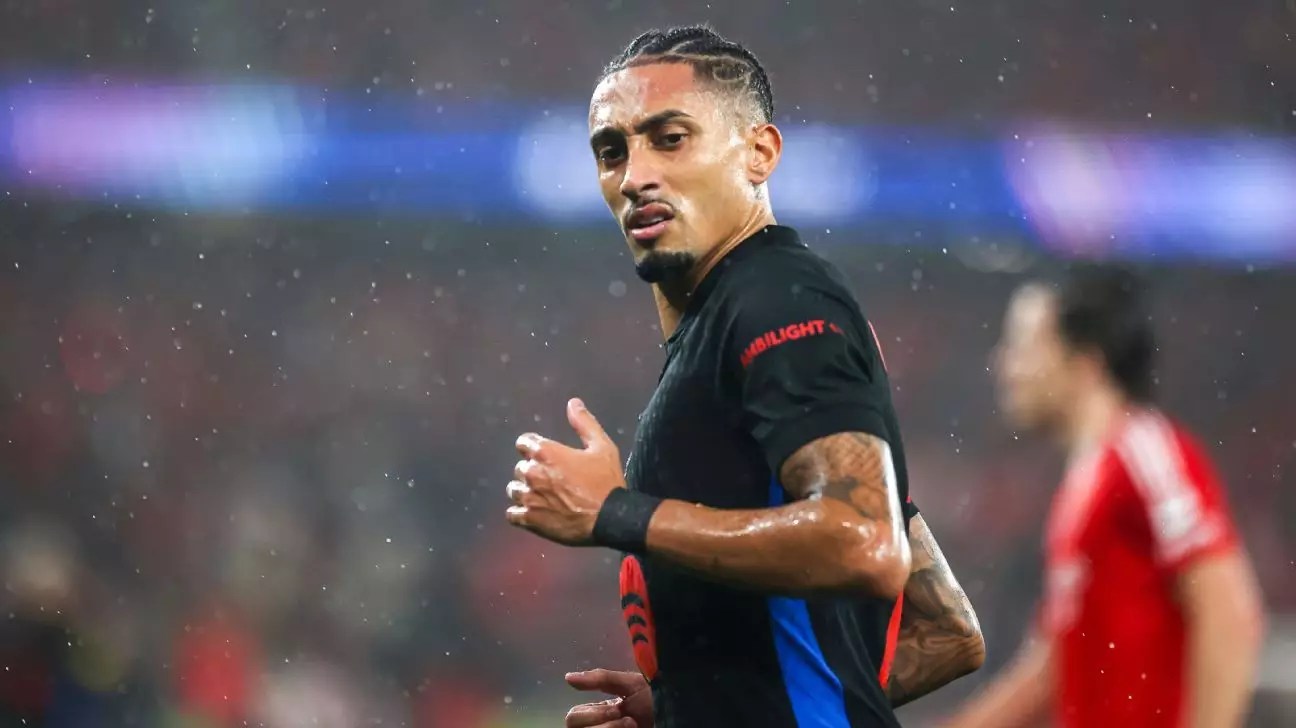In a world where football is increasingly defined by relentless schedules and tightening windows, Barcelona’s coach Hansi Flick has articulated a simmering discontent over the hurried nature of an upcoming match against Osasuna. As a professional competitor, Flick understands the unpredictability of the football calendar; however, his frustration stems from the specific circumstances that surround this fixture. Originally set for early March, the match was postponed due to a tragic event—the passing of the team’s first doctor, Carles Miñarro. Such circumstances warrant profound empathy and understanding, yet the implications of rescheduling have forced Barcelona into a high-pressure environment, a reality Flick isn’t hesitant to challenge.
This urgency, conspicuously carved from the demands of overlapping international duties and club commitments, places immense strain on the players. With Barcelona poised to face an exhausting run of seven fixtures in just 20 days, the fielding of a depleted squad is less a tactical decision and more a necessity borne from circumstance. The absence of Raphinha and Ronald Araújo, who are returning from World Cup qualifiers in South America, epitomizes the dilemma of managing player welfare amid congested calendars.
The Balancing Act of National and Club Duties
From an analytical perspective, the tension between national and club commitments in football illustrates a broader systemic failure within the sport. Flawed scheduling often prioritizes brand visibility and revenue generation over player well-being and performance. Flick’s reluctance to voice explicit bitterness, stating, “I don’t want to speak about my reaction,” reflects a deeper awareness of the complex interplay at work. Players are expected to navigate their responsibilities to national teams while effectively transitioning back to their clubs, often with little time for recuperation.
International breaks are meant to champion national pride, but alongside this noble pursuit lies a grim reality for the clubs: logistical nightmares and performance risks abound when key players are thrust back into action with virtually no rest. Flick’s comments regarding the challenges presented by domestic league scheduling, particularly when contrasted with practices in other leagues, underline this disparity. While powerhouses of European football vie for honors on multiple fronts, the logistical coordination often leaves much to be desired.
Long Flights and Long Recoveries
As the team prepares for their matchup against Osasuna, the uncertainties of player availability loom large. “Rapha and Ronald will not play,” Flick confirmed, casting a shadow over the squad’s immediate tactical options. Both players face daunting flight times back to Europe, adding layers of complication to recovery periods that already feel desperately short. Surprisingly, the coach has chosen to forego customary days off for players returning from international duty, opting instead for intense preparations. This decision speaks volumes about the high stakes at play but also exposes the burnout risks inherent in the system.
Flick’s role in forging a resilient team capable of weathering these challenges cannot be underestimated. The inclusion of Eric García and Iñigo Martínez in the starting lineup hints at a strategic pivot, necessitated by absences. The dialogue surrounding the need for recovery strategies isn’t merely an acknowledgment of physical fatigue; it reflects a sophisticated understanding of the mental and emotional toll that a whirlwind schedule can extract from players.
The Road Ahead and Team Dynamics
In the face of adversity, Barcelona stands on the precipice of critical competitions across multiple fronts. The fatigue and recuperation issues may weigh heavily on the players, but the fixture against Osasuna serves as a pivotal moment. A win would not only bolster their standing but also ignite ambitions of securing a three-point lead over eternal rivals, Real Madrid. However, threats loom on the horizon, with Girona and Atletico Madrid on the agenda, along with a Champions League clash against Borussia Dortmund wedged into the mix.
While a sense of urgency stirs within the club, it’s essential to recognize the staff’s efforts behind the scenes. Flick’s consultations with physiotherapists and fitness coaches showcase an analytical approach, dedicated to refining recovery methodologies. Such strategies underline an imperative: thriving in modern football demands constant adaptation and a level of foresight that transcends mere tactics.
As the narrative progresses, the onus rests not just on the players to deliver on the field, but on the entire ecosystem of football to reconsider how it manages the confluence of competition and compassion. The journey ahead is steeped in challenges, but within the heart of turmoil lies the potential for unparalleled resilience, determination, and ultimately, glory.


Leave a Reply